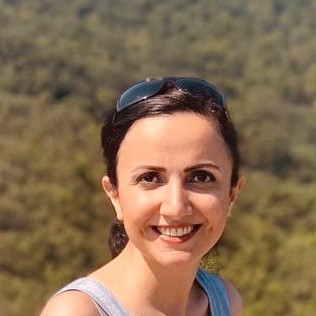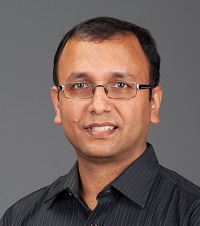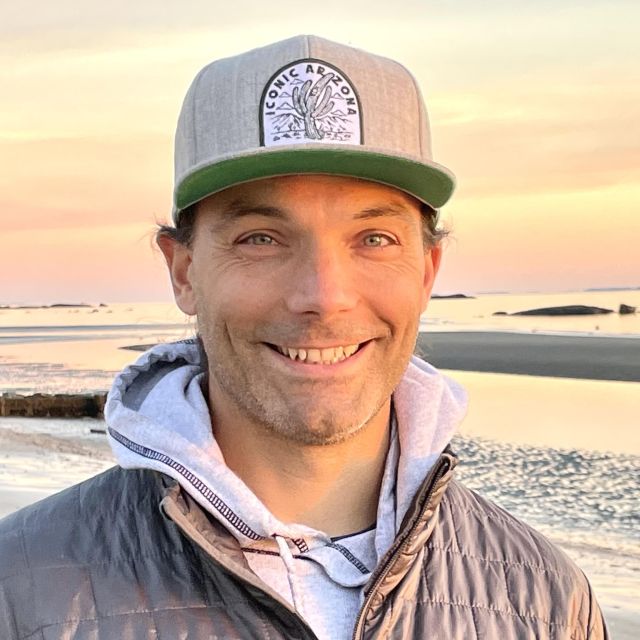Panel Discussion with Past UCGIS I-GUIDE Community Champions
November 29, 2023 11:00 am (Central Time)
Recorded VCO
Abstract
This VCO featured a panel discussion with past members of the I-GUIDE UCGIS Community Champions program and showcased valuable insights and experiences from alumni of the program, including Zeynab Jouzi and Shakil Kashem from the 2022-2023 cohort, and Peter Kedron from the 2021-2022 cohort.
During the webinar, our panelists shared the projects and accomplishments that defined their time with the UCGIS I-GUIDE Community Champions program. From small-scale projects aligned with the annual theme to direct engagement with I-GUIDE's activities, outreach initiatives, and real-world impacts, each champion's story was a testament to the program's commitment to expanding the community reach of I-GUIDE.
Speakers

Zeynab Jouzi
Cornell University
Dr. Zeynab Jouzi is a postdoctoral researcher at the Action Research Collaborative (ARC), Cornell University. Her research interests lie primarily in food security and environmental justice. She takes a multidisciplinary approach by bringing together different disciplines and methods to address these issues. Zeynab has been the recipient of several awards and fundings including the 2021 awardee of Future Leader by the Association for International Agriculture and Rural Development (AIARD) and receiving support for an interdisciplinary team research on “Climate Gentrification Across the East coast of the United States” from National Socio-Environmental Synthesis Center (SESYNC). She aspires to use her career as a researcher to create win-win solutions to protect people and the planet and to promote environmental justice with emphasis on “Leave No One Behind”.

Shakil Kashem
Kansas State University
Dr. Shakil Kashem is an assistant professor with the Department of Landscape Architecture and Regional & Community Planning at Kansas State University. His research interests revolve around urban social vulnerability, equity planning, and community resilience. He is interested in exploring how plans and policies, particularly in the realm of climate change concerns, influence socially vulnerable populations and in identifying ways to ensure just and equitable outcomes from these plans. He has keen interests in Geographic Information Science and its applications in urban planning. In his current research, he is delving into how urban big data can be leveraged to analyze the space-time dynamics of social vulnerability within a city and how such dynamics can be considered in equity planning. Prior to joining the Regional & Community Planning program at K-State, he was a Teaching Assistant Professor in the Department of Geography and Geographic Information Science at the University of Illinois at Urbana-Champaign. He received his Ph.D. in Regional Planning from the University of Illinois and completed his Bachelor’s and Master’s in Urban and Regional Planning from the Bangladesh University of Engineering and Technology.

Peter Kedron
University of California, Santa Barbara
Dr. Peter Kedron is a human geographer and GIScientist with expertise in economic geography, spatial analysis, and the design and evaluation of research. Dr. Kedron joined UCSB as an Associate Professor and member of the Center for Spatial Data Science after previously holding faculty positions at Arizona State University (2018-2023), Oklahoma State University (2016-2018), and Ryerson University (2012-2016). He earned his Ph.D. in Geography from the State University of New York at Buffalo, an MA in Economics from the University of Michigan, and BAs in Economics and Psychology from the State University of New York at Buffalo. His research develops and uses spatial analytical methods to explain geographic variation in social and ecological processes. Dr. Kedron's recent work focuses on the use of replication as a means of evaluating geographic research, and on developing statistical approaches to improve the accumulation of evidence collected from different locations. To date, he has authored over 55 peer-reviewed articles, given over 100 conference presentations and public talks, and supervised over 20 graduate students and post-doctoral scholars.